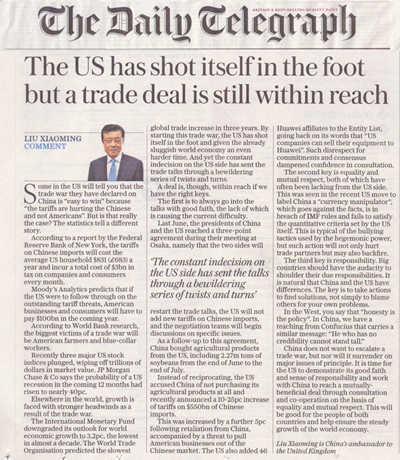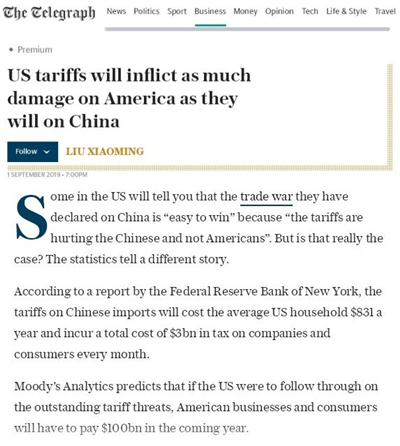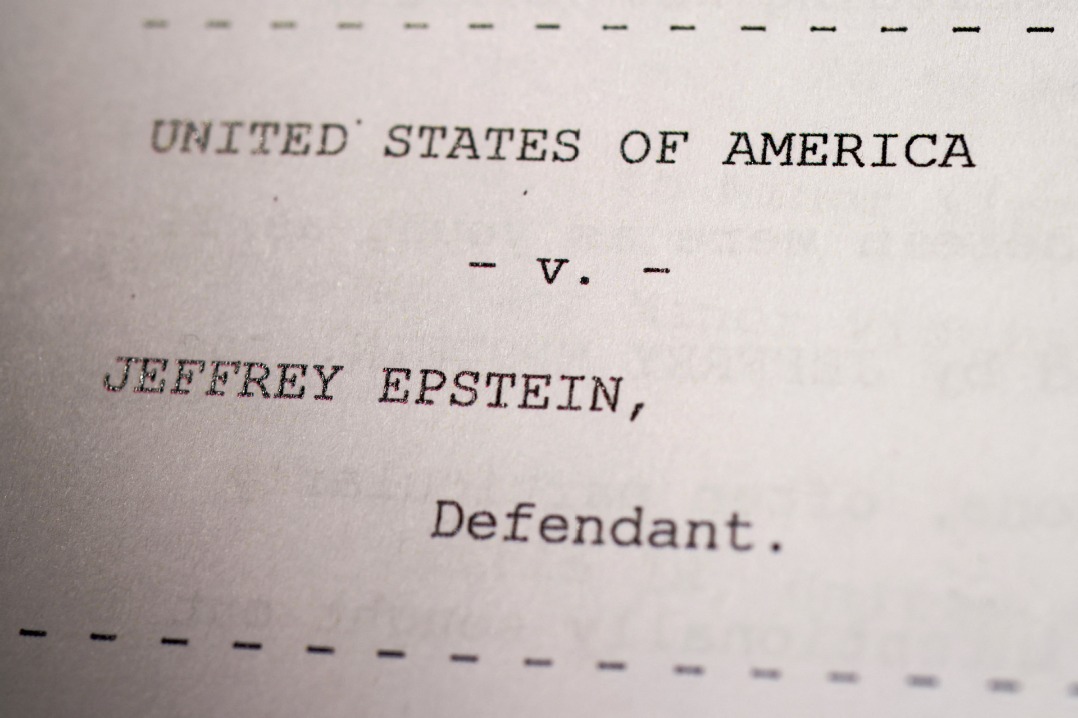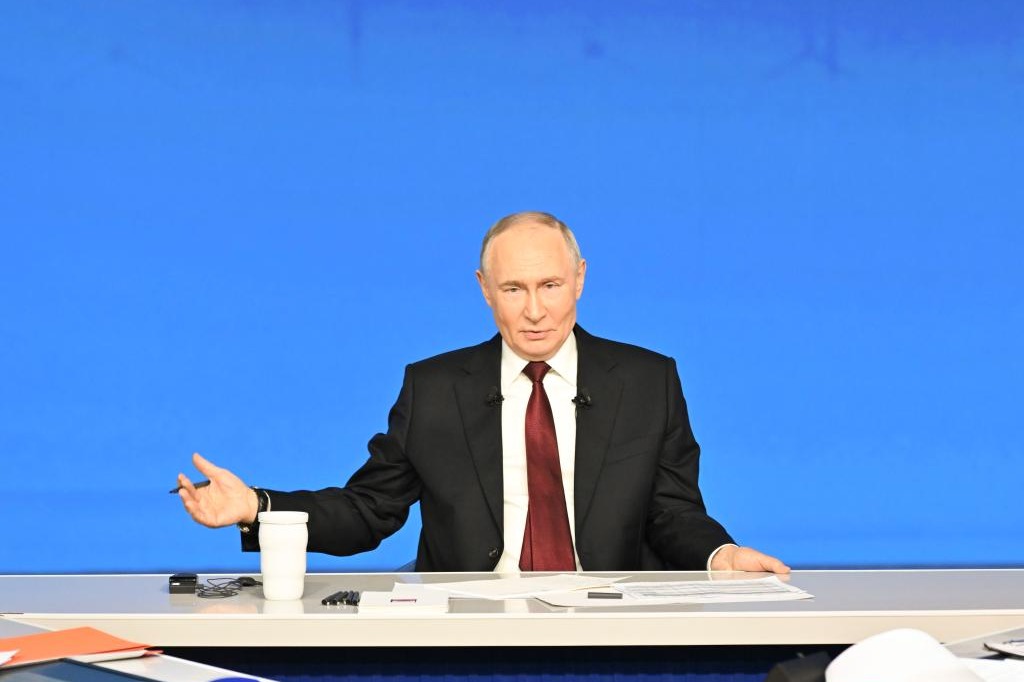Ambassador Liu Xiaoming contributes an article entitled US tariffs will inflict as much damage on America as they will on China to The Daily Telegraph


On 2 September 2019, The Daily Telegraph carried an article by Ambassador Liu Xiaoming entitled The US has shot itself in the foot but a trade deal is still within reach. The newspaper's website published the article under the title US tariffs will inflict as much damage on America as they will on China. The full text is as follows:
Some in the US will tell you that the trade war they have declared on China is "easy to win" because "the tariffs are hurting the Chinese and not Americans". But is that really the case? The statistics tell a different story.
According to a report by the Federal Reserve Bank of New York, the tariffs on Chinese imports will cost the average US household $831 a year and incur a total cost of $3 billion in tax on companies and consumers every month. Moody's Analytics predicts that if the US were to follow through on the outstanding tariff threats, American businesses and consumers will have to pay $100 billion in the coming year. According to World Bank research, the biggest victims of a trade war will be American farmers and blue-collar workers. Recently three major US stock indices plunged, wiping off trillions of dollars in market value. JP Morgan Chase & Co says the probability of a US recession in the coming 12 months had risen to nearly 40 per cent.
Elsewhere in the world, growth is faced with stronger headwinds as a result of the trade war. The International Monetary Fund downgraded its outlook for world economic growth to 3.2 per cent, the lowest in almost a decade. The World Trade Organisation predicted the slowest global trade increase in three years.
By starting this trade war, the US has shot itself in the foot and given the already sluggish world economy an even harder time. And yet the constant indecision on the US side has sent the trade talks through a bewildering series of twists and turns. A deal is, though, within reach if we have the right keys.
The first is to always go into the talks with good faith, the lack of which is causing the current difficulty. Last June, the presidents of China and the US reached a three-point agreement during their meeting at Osaka, namely that the two sides will restart the trade talks, the US will not add new tariffs on Chinese imports, and the negotiation teams will begin discussions on specific issues. As a follow-up to this agreement, China bought agricultural products from the US, including 2.27 million tons of soybeans from the end of June to the end of July.

Instead of reciprocating, the US accused China of not purchasing its agricultural products at all and recently announced a 10-25 per cent increase of tariffs on $550 billion of Chinese imports. This was increased by a further 5 per cent following retaliation from China, accompanied by a threat to pull American businesses out of the Chinese market. The US also added 46 Huawei affiliates to the Entity List, going back on its words that "US companies can sell their equipment to Huawei". Such disrespect for commitments and consensus dampened confidence in consultation.
The second key is equality and mutual respect, both of which have often been lacking from the US side. This was seen in the recent US move to label China a "currency manipulator", which goes against the facts, is in breach of IMF rules and fails to satisfy the quantitative criteria set by the US itself. This is typical of the bullying tactics used by the hegemonic power, but such action will not only hurt trade partners but may also backfire.
The third key is responsibility. Big countries should have the audacity to shoulder their due responsibilities. It is natural that China and the US have differences. The key is to take actions to find solutions, not simply to blame others for your own problems. In the West, you say that "honesty is the policy". In China, we have a teaching from Confucius that carries a similar message: "He who has no credibility cannot stand tall."
China does not want to escalate a trade war, but nor will it surrender on major issues of principle. It is time for the US to demonstrate its good faith and sense of responsibility and work with China to reach a mutually-beneficial deal through consultation and cooperation on the basis of equality and mutual respect. This will be good for the people of both countries and help ensure the steady growth of the world economy.

































